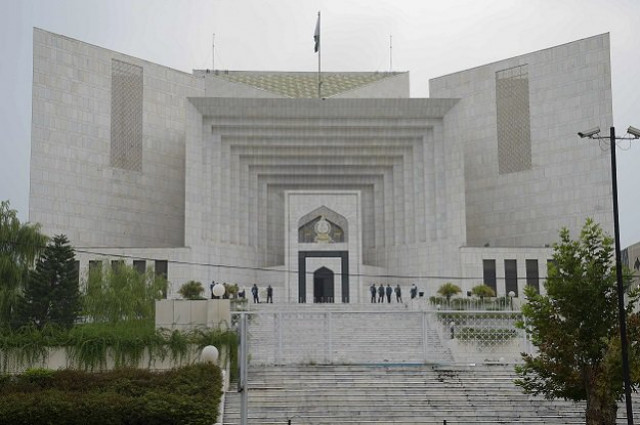Expeditious passage of bill on HIV recommended
Reports on AIDS control programmes submitted in SC

Supreme Court of Pakistan. PHOTO: AFP
A set of recommendations presented by the committee constituted by the apex court having representatives of national and provincial Aids control programme managers and international bodies also suggests to hold effective advocacy and awareness campaigns through the media to prevent the spread of the disease.
The report recommends providing uninterrupted HIV prevention and treatment services to those in need. It calls for tapping resources to address the gaps in the service provision.
88% blood deposits in Islamabad come from family, friends, says IBTA report
The report highlights that HIV prevention services for key populations are limited to select cities and populations.
In Punjab since 2016 those services -- including HIV prevention -- while testing services in Khyber-Pakhtunkhwa care and services for PLHIV are not available.
Citing weak monitoring and evaluation system the report asks for the development of national database to document and record HIV services provision by all public and private institutions and organisations.
It also says to draft a framework for the reduction of stigma and discrimination developed supported by the ethical committees at service delivery points.
The report highlights stigma and discrimination against key population as very high as more than 50 percent.
In June 2008, a nongovernmental organisation in Jalapur Jattan, Gujrat, had found 88 HIV positive people in two HIV screening camps.
Later an investigation found that the patients were infected by using the same syringes on multiple patients by quacks. A case was registered in the Supreme Court to review and investigate the outbreak.
On August 3, 2018, the court had constituted a committee to review the matter and recommendations to stop the spread of the disease.
According to the report there are an estimated 150,000 people living with HIV in the country but the epidemic is concentrated in key populations: people who inject drugs (PWID 38.4%), male, female and transgender sex workers (MSW 5.6 %, FSW 2.2%, and TGSW 7.5%), men who have sex with men (MSM 5.4%), and transgender (TG 7.1%).
But the progression of HIV epidemic in Pakistan is following the Asian epidemic trend whereby HIV infection after reaching a plateau level in PWID shifts to the general population through sexual networks bridging populations.
An estimated 20,000 new HIV infections were added to the pool of PLHIV in the country of which 28 per cent of the new infections occurred in PWID, 12 per cent in MSM, 3 per cent in TGs and 2 per cent in FSW.
A significant percentage of low risk males, females and clients of KPs were newly infected suggesting an increase in HIV transmission to bridging populations (spouses, partners and clients) of key populations.



















COMMENTS
Comments are moderated and generally will be posted if they are on-topic and not abusive.
For more information, please see our Comments FAQ